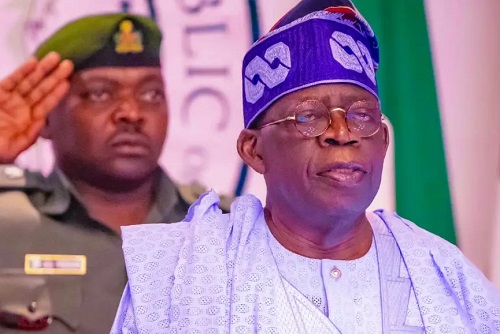The president, Asiwaju Bola Tinubu, has forwarded additional 19 names of ministerial nominees. The Chief of Staff and the former Speaker of the House of Representatives, Femi Gbajamiabila has presented the new batch of ministerial list to the Senate. The Rules of the chamber were suspended at Continue Reading
The Inspector-General of Police, Usman Baba has commended the National Assembly for the passage of the Police Pension Board Bill and the Nigeria Police Force College, Training School and Institution (Establishment) Bill. The Senate had on Tuesday announced that it had passed the bills. Reacting to the development during a press conference at the Force […]Continue Reading
By Funmi Adekoya The 2023 general elections have come and gone, but with a low percentage of women’s representation in the National and State Assemblies despite a series of enlightenment and support by International and local Civil Society Organisations for women’s participation in politics, the story could still be read as the same. According to a […]Continue Reading
Ahead of next month primaries of the Peoples Democratic Party, PDP in Oyo State, the party has begun screening of Aspirants for the national and state Assembly seats.Radio Nigeria correspondent reports that the screening exercise which took place at the PDP party secretariat, Molete Ibadan considered all aspirants irrespective of any consensus arrangements in various […]Continue Reading
The lawmaker representing Ogbomoso North in the Oyo State House of Assembly, Mrs Olawunmi Oladeji has expressed worry over the recent rejection of some amendment bills on matters concerning women by the National Assembly. Mrs Oladeji who made this known while receiving an Award of Excellence conferred on her by an indigenous group, Ogbomoso Development […]Continue Reading
The Clerk to the National Assembly (NASS), Mr Olatunde Amos Ojo has transmitted the authenticated amended copies of the Electoral Bill 2022 to President Mohamadu Buhari for assent, Monday. A statement by the Senior Special Adviser to the President on National Assembly matters Senate, Babajide Omoworare said this was done in accordance with the provisions […]Continue Reading
President Muhammadu Buhari will present the 2022 budget estimate to a joint session of the National Assembly on Thursday. The Deputy President of the Senate, Ovie Omo-Agege, made this known while presiding over the plenary on Tuesday at National Assembly in Abuja. The budget presentation was coming early enough due to the January to December […]Continue Reading
Clerk of the National Assembly, Architect Amos Olatunde has advocated a strong inter parliamentary synergy among the state houses of assemblies in the country to create a common goal for quality legislation for Nigerians Arch. Olatunde made this known while receiving Oyo state House of Assembly committee on Inter Parliamentary Relations’ led by its Continue Reading
The newly appointed Senior Special Assistant to Nigeria’s president on National Assembly (Senate), Senator Babajide Omoworare has expressed his commitment to ensuring a functional and purposeful working relationship between the Executive and the Legislative arms of government. In a statement personally signed by him, Senator Omoworare thanked God and President Continue Reading
